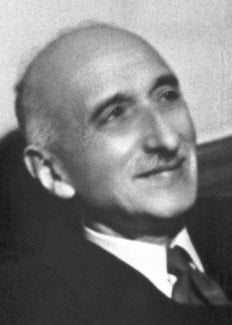François Mauriac
Biographical

François Mauriac (1885-1970) was born in Bordeaux. His father, a banker, died when he was eighteen months old, leaving his mother with five children, of which he was the youngest. François grew up in a closely sheltered world, first under the protection of his mother, later in a school run by the Marianites. He studied literature at Bordeaux and Paris but soon became an independent writer. Les Mainsjointes [Clasped Hands], a collection of poems that appeared in 1909, aroused some interest, but it was not until the publication of Le Baiser aux lepreux (1922) [A Kiss for the Leper] that Mauriac became famous. In 1933, he was elected to the Académie Française. During the Second World War he lived in occupied territory, at his estate in Malagar and in Paris, and published Le Cahier noir [The Black Notebook] under the pseudonym Forez. After the war de Gaulle made Mauriac a Grand Officer of the Legion of Honour. Apart from his many novels, Mauriac has published several plays which have been produced by the Comédie Française. He is also a distinguished journalist and has been an editorial writer for Figaro.
The «religious» novels of Mauriac have been a puzzle to many critics, for they abound in evidences of the «dark side of life», and their religious content is not directly apparent. For instance, Le Desert de l’amour (1925) [The Desert of Love] portrays the triangle of a woman and her would-be lovers, father and son, whose «unused» passion, an illusion of escape, turns into the desert in whose isolation the characters live their frustrated lives. Other outstanding novels are Thérèse Desqueyroux (1927) [Thérèse], Le Noeud de vipères (1932) [The Knot of Vipers], La Fin de la nuit (1935) [The End of the Night], and La Pharisienne (1941) [A Woman of the Pharisees]. His most recent work has been a study of Charles de Gaulle (1964). Mauriac’s complete works were published in twelve volumes between 1950 and 1956.
This autobiography/biography was written at the time of the award and first published in the book series Les Prix Nobel. It was later edited and republished in Nobel Lectures. To cite this document, always state the source as shown above.
François Mauriac died on September 1, 1970.
Nobel Prizes and laureates
Six prizes were awarded for achievements that have conferred the greatest benefit to humankind. The 12 laureates' work and discoveries range from proteins' structures and machine learning to fighting for a world free of nuclear weapons.
See them all presented here.
